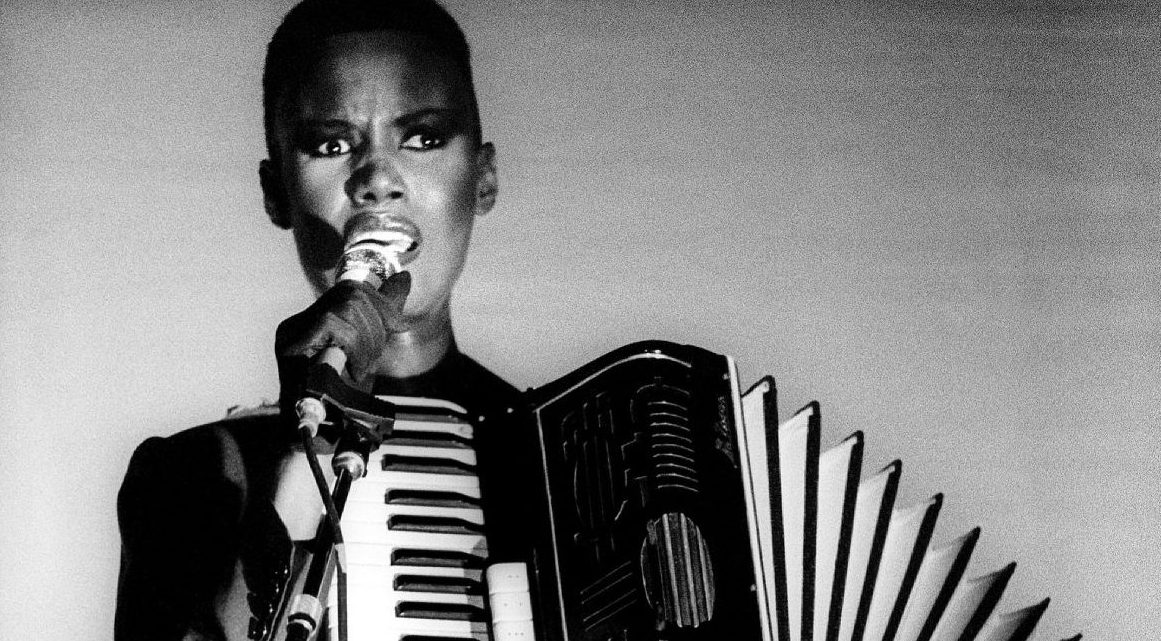That Grace Jones is going to be a headliner at King Charles’s coronation does not surprise me.
Nobody can tell me that Charles did not know of Grace Jones back in the 1970s when she started out. Charles, Grace and I are all the same age and she was a nuclear explosion on the art, fashion and music scene sine qua non. She tore it all down.
So forget that polo-playing playboy Prince of Wales BS that the press and the royal family sold about Charles back then. This guy was talking to plants.
We, who paid attention to him in a kind of celebrity-watching anthropological way, all knew that the “sell” didn’t fit, no matter how out of it he looked in public.
Yes, this was the guy who had managed to escape the ’60s, dressed up like a member of a Pall Mall gentlemen’s club, when he was just 15, when every guy around was growing his hair.
Yet, that he has Grace on his list is no surprise to me. She was the revolution.
I guess that the term “cultural icon” is a signal to Gen Zs that she’s from another age, an ancient time, an embodiment of that phrase: “the past, they do things differently there.” But actually she’s widely imitated: many just don’t know it.
Beyoncé has her attitude; Gigi Hadid has that angular look.
Grace counsels the young not to use the word “cool”. It’s tired and uncool and she chastises them for it. But that is what she is.
I first saw Grace Jones’ image in the 1970s when I used to read lots of fashion magazines.
Suddenly one day there was this model of African descent and she was dark-skinned, too. She had her hair cut short like the way males wore it and it was in its natural state, too – no chemicals etc.
The only person I had ever seen look like that was Miriam Makeba, but Grace was my age and that’s how I knew that I could do that too.
To my parents’ consternation, I went to the barbershop, had my hair cut down to its natural shape, and have worn it short with no straightening chemicals ever since.
Grace looked like something else, was someone else that we young women knew was also us. She was a new definition of the slogan “Black Power” and she did not need politics.
She inspired me to move to New York City at the end of the 1970s, to Greenwich Village – The Village – as it was referred to by the locals, when New York City was broken down; dangerous, and brimming with art and music.
I was lucky to be at Paradise Garage the night a baby shower was thrown for her. She was carrying the son who became the fashion designer and model Paulo Goude.
Grace was with Jean-Paul Goude back then, and he made a contraption that wheeled her out on stage like some kind of art piece. She had a cone-shaped hat on her head.
The way that Goude co-created her would not be considered now to be “correct”. There was a fair bit of “jungle” and “savage” insinuation running through her look, and stuff being generally out of control.
But we knew how to filter that, we girls of African descent. And anyway, it was the gay male community who really emulated her almost completely and with total brilliance, capturing the irony and the playfulness and
the art.
There was something insouciant about her singing too, something that sounded slightly off-key which challenged your ear and your idea of pop itself.
She took the Édith Piaf classic La Vie en rose and kind of stalked it, turning it into something fresh and ironic.
My own one degree of separation from her concerned her hit Pull Up to the Bumper. The song was co-written by a friend of mine back in those days, Dana Mano. It was full of innuendo and Grace was criticised for it.
But Dana told me that the lyric came to her because in her building there was an underground garage. There was a sign there that told the driver to “pull up to the bumper” when parking. In other words, drive right up to the barrier in order to make room for more cars.
Anybody else could have sung that lyric and it would have sounded banal and maybe like a commercial or something. But Grace made it mean something else and that something else could take you into spaces and places both inside of yourself and outside of yourself that you had never visited.
This ability is a gift and she wears it lightly in spite of being the creation that she undoubtedly is. Her magic is her own. Her stamina and fitness are too.
She performed with a hula-hoop in front of the Queen at one of HM’s jubilee celebrations and Grace was sixty-something then.
Put it down to her being from one of the epicentres of the earth: Jamaica; or not really caring for the status quo; or just wanting to play her own game in her own way, an act of sheer brilliance and courage.
She is a true artist in that she forges her own path at every step, even when she is being “created” by someone/something else. You could tell that she was and still is learning, setting the pace.
Back when she first came on the scene, there was one famous African American model referred to as “a white woman dipped in chocolate”. This was considered, then, to be a high compliment, the mark of someone who had “broken through”. But it was Grace Jones who had broken through.
Grace Beverly Jones is an icon in the true definition of that word: “a representative symbol worthy of veneration”.
She was for me way back when I was a young woman like her, and the King was a young man, and she still is.
Long may she sail.




